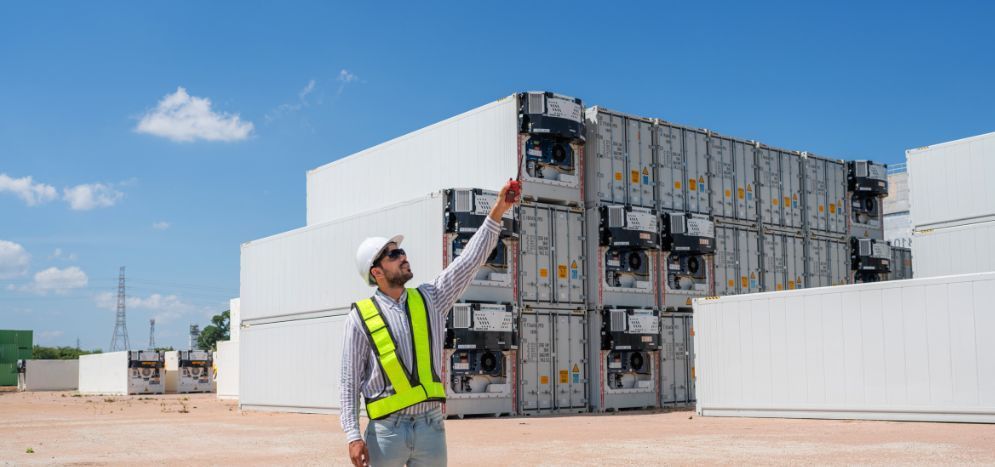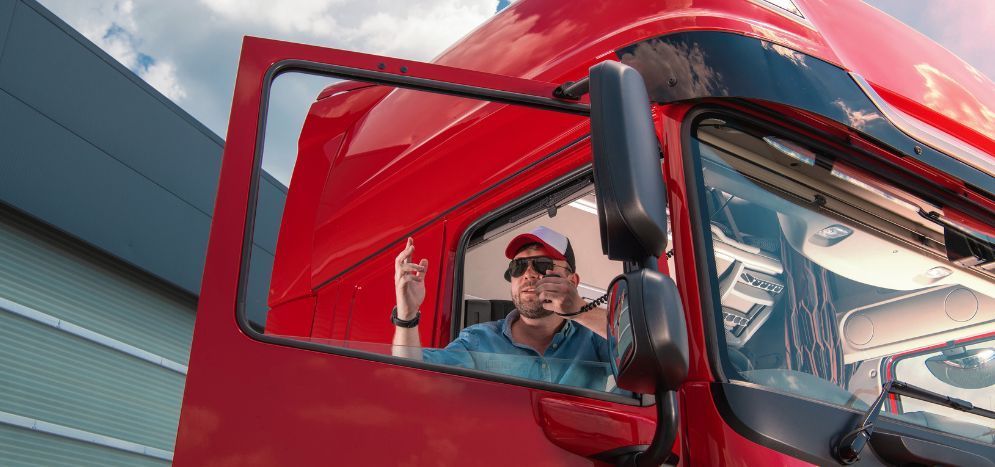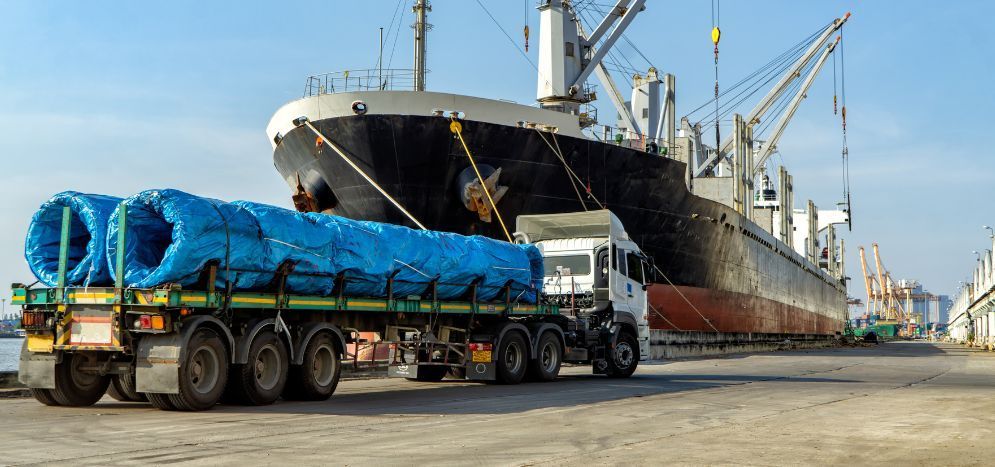See How We're Different
or call us: (816) 200-1183

In the trucking industry, ensuring adequate insurance coverage is paramount for protecting assets, cargo, and the overall business. However, many trucking companies, particularly those operating reefer (refrigerated) and dry van trucks, often overlook critical aspects of their insurance policies. This article delves into common gaps in coverage for both reefer and dry van trucking, helping operators to identify potential vulnerabilities and make informed decisions about their insurance needs.
Understanding Reefer and Dry Van Trucking
Before exploring the gaps in coverage, it's essential to understand the differences between reefer and dry van trucking. Reefer trucks are equipped with temperature-controlled trailers designed to transport perishable goods, such as food and pharmaceuticals. On the other hand, dry van trucks are used for general cargo that does not require temperature regulation.
Both types of trucking operations face unique challenges and risks, which can impact their insurance requirements. For instance, reefer trucks must contend with the risk of temperature fluctuations that can spoil cargo, while dry van trucks may face issues related to theft or damage to non-perishable goods.
In addition to the inherent risks associated with the types of cargo they carry, reefer trucks also have to navigate the complexities of maintaining their refrigeration systems. A malfunction in the cooling unit can lead to significant financial losses, as spoiled goods must be replaced, and the potential for liability claims increases if the cargo is compromised during transit. This necessitates a more comprehensive insurance policy that covers not just the cargo but also the equipment and potential downtime for repairs.
Conversely, dry van trucking often involves a higher volume of shipments that can lead to increased wear and tear on the vehicles. The risk of accidents, whether due to driver error or adverse weather conditions, is a constant concern. Moreover, dry van operators must also consider the implications of load securement and the potential for cargo shifting during transit, which can result in damage to the goods or even accidents on the road. As a result, the insurance needs for dry van trucking can be complex, requiring coverage that addresses both the cargo and the operational risks associated with transportation logistics.
Common Gaps in Coverage for Reefer Trucking
1. Inadequate Cargo Insurance
Cargo insurance is vital for reefer trucking, as it protects against loss or damage to perishable goods during transit. However, many operators underestimate the importance of this coverage. Standard cargo insurance may not cover specific types of perishable goods or may have limitations based on temperature control failures.
To mitigate this risk, reefer trucking companies should consider specialized cargo insurance that explicitly covers temperature-sensitive items. This coverage should include provisions for spoilage due to equipment failure, operator error, or unforeseen circumstances. Additionally, operators should regularly review their policies to ensure they reflect the current value of the goods being transported, as fluctuations in market prices can significantly impact potential losses. Engaging with an insurance broker who specializes in the reefer industry can also provide insights into the most comprehensive coverage options available, ensuring that operators are not caught off guard by unexpected incidents.
2. Equipment Breakdown Coverage
Reefer trucks rely heavily on their refrigeration units to maintain the integrity of the cargo. Unfortunately, equipment breakdowns can occur, leading to significant losses. Many trucking companies overlook equipment breakdown coverage, assuming that their general liability insurance will suffice.
Equipment breakdown coverage is essential for protecting against the costs associated with repairing or replacing malfunctioning refrigeration units. This coverage can help offset losses incurred from spoiled cargo and reduce the financial burden on the trucking operation. Furthermore, it may also cover the costs of rental equipment while repairs are being made, ensuring that operations can continue with minimal disruption. Regular maintenance checks and investing in high-quality refrigeration units can also play a crucial role in minimizing the risk of breakdowns, thereby safeguarding both the cargo and the company’s bottom line.
3. Lack of Contingent Cargo Coverage
Contingent cargo coverage is another area where reefer trucking companies may find themselves underinsured. This type of coverage protects against losses when a third-party carrier is responsible for transporting cargo. If the third-party carrier's insurance is inadequate or non-existent, the reefer trucking company could face significant financial losses.
To safeguard against this risk, reefer operators should consider adding contingent cargo coverage to their policies. This ensures that they are protected in the event of a loss, regardless of who is responsible for the transportation. Additionally, establishing strong relationships with reliable third-party carriers can help mitigate risks, as operators can vet these partners for their insurance adequacy and overall reliability. Regular audits and performance reviews of third-party carriers can also help ensure that they maintain the necessary standards to prote
Common Gaps in Coverage for Dry Van Trucking
1. Insufficient General Liability Insurance
General liability insurance is a fundamental component of any trucking operation. However, many dry van trucking companies may not carry sufficient coverage to protect against potential claims. This can be particularly problematic in cases of accidents or property damage caused by the trucking operation.
To avoid gaps in coverage, dry van trucking companies should regularly review their general liability policies and ensure that they have adequate limits in place. This may involve working with an insurance professional to assess the specific risks associated with their operations and adjust coverage accordingly. Additionally, companies should be aware of the various types of claims that can arise, such as slip-and-fall incidents at loading docks or damage to third-party property during transit. By understanding these risks, trucking companies can better tailor their policies to provide comprehensive protection.
2. Neglecting Workers' Compensation Insurance
Workers' compensation insurance is crucial for protecting employees in the event of work-related injuries or illnesses. Some dry van trucking companies may underestimate the importance of this coverage, believing that their general liability insurance is sufficient.
In reality, workers' compensation insurance is a separate policy that specifically addresses employee injuries. Failing to carry this coverage can result in significant financial liabilities and legal complications. Therefore, it is essential for dry van trucking companies to prioritize workers' compensation insurance to protect their workforce. Furthermore, understanding the nuances of workers' compensation laws in different states can help companies navigate potential pitfalls. For instance, some states have specific requirements regarding the coverage amount or the types of injuries that are compensable, which can impact how a company structures its insurance policy.
3. Underestimating the Importance of Umbrella Insurance
Umbrella insurance provides an additional layer of protection beyond standard liability limits. Many dry van trucking companies may not consider this coverage necessary, assuming that their existing policies are adequate. However, accidents can lead to claims that exceed standard liability limits, leaving the trucking company vulnerable to significant financial losses.
Investing in umbrella insurance can provide peace of mind and additional protection against unforeseen circumstances. It is advisable for dry van trucking companies to evaluate their risk exposure and consider adding umbrella coverage to their insurance portfolio. In addition to protecting against large claims, umbrella insurance can also cover certain liabilities that may not be included in standard policies, such as libel or slander claims. This broader coverage can be particularly valuable in an industry where reputational risks can have far-reaching consequences. By proactively seeking out umbrella insurance, trucking companies can safeguard their assets and ensure long-term stability in a competitive market.
Other Common Coverage Gaps in Trucking
1. Failure to Update Policies
As trucking companies grow and evolve, their insurance needs may change. However, many operators fail to update their policies accordingly. This can lead to gaps in coverage that leave the business exposed to risks.
Regularly reviewing and updating insurance policies is crucial for ensuring that coverage aligns with the current operations and risk profile of the trucking company. Engaging with an insurance agent can help identify necessary adjustments and ensure comprehensive protection. For instance, if a company expands its fleet or begins to transport different types of cargo, these changes should be reflected in the insurance policy to avoid potential liabilities. Additionally, seasonal fluctuations in business may require temporary adjustments to coverage limits, which can further safeguard against unforeseen circumstances.
2. Overlooking Cyber Liability Insurance
In an increasingly digital world, trucking companies are becoming more reliant on technology for operations, from tracking shipments to managing logistics. However, this reliance also exposes them to cyber risks, such as data breaches and ransomware attacks.
Many trucking companies overlook the importance of cyber liability insurance, believing that their general liability coverage is sufficient. However, cyber liability insurance specifically addresses the unique risks associated with data breaches and other cyber incidents. Investing in this coverage can help protect against the financial repercussions of cyber threats. Moreover, as regulations around data protection tighten, having robust cyber liability coverage can also help companies comply with legal requirements and avoid hefty fines. Training employees on cybersecurity best practices can further enhance a company's defenses against potential attacks, ensuring that both the technology and the workforce are prepared to mitigate risks.
3. Misunderstanding Policy Exclusions
Insurance policies often contain exclusions that can limit coverage in specific situations. Many trucking operators may not fully understand these exclusions, leading to unexpected gaps in coverage when claims arise.
It is essential for trucking companies to thoroughly review their insurance policies and understand the exclusions that may apply. Engaging with an insurance professional can help clarify these terms and ensure that operators are aware of potential vulnerabilities in their coverage. For example, certain policies may exclude coverage for accidents that occur while drivers are under the influence or while vehicles are used for non-business purposes. Understanding these exclusions can empower trucking companies to implement better safety protocols and training programs, ultimately reducing the likelihood of incidents that could lead to uncovered claims. Furthermore, proactive risk management strategies can help mitigate the impact of these exclusions, ensuring that businesses remain resilient in the face of challenges.
Strategies to Address Coverage Gaps
1. Conduct a Comprehensive Risk Assessment
To identify gaps in coverage, trucking companies should conduct a comprehensive risk assessment. This involves evaluating all aspects of the operation, including cargo types, equipment, and employee safety. By understanding the specific risks associated with their operations, companies can make informed decisions about their insurance needs.
Engaging with risk management professionals can provide valuable insights and help identify potential vulnerabilities that may require additional coverage. This proactive approach can lead to a more robust insurance portfolio and enhanced protection against unforeseen events. Additionally, companies should consider using data analytics tools to analyze historical claims and incident reports, which can reveal patterns and trends that may not be immediately apparent. By leveraging this data, trucking companies can better anticipate risks and tailor their insurance policies accordingly, ensuring that they are not only compliant but also strategically protected.
2. Work with an Experienced Insurance Agent
Partnering with an experienced insurance agent who specializes in the trucking industry can be invaluable. These professionals understand the unique challenges faced by trucking companies and can provide tailored advice on coverage options.
Insurance agents can help identify gaps in coverage, suggest appropriate policies, and ensure that operators are adequately protected against the risks associated with their specific operations. Building a strong relationship with an insurance agent can lead to better coverage and peace of mind. Furthermore, an adept agent can keep clients informed about emerging trends in the insurance landscape, such as new regulatory requirements or innovative coverage solutions that may arise due to technological advancements in the industry. This ongoing dialogue can empower trucking companies to stay ahead of potential risks and adapt their insurance strategies proactively.
3. Regularly Review and Update Insurance Policies
Insurance needs can change over time, so it is essential for trucking companies to regularly review and update their policies. This may involve reassessing coverage limits, adding new endorsements, or removing unnecessary coverage.
Establishing a routine for reviewing insurance policies can help ensure that coverage remains aligned with the evolving needs of the business. This proactive approach can help prevent gaps in coverage and provide comprehensive protection against risks. Additionally, companies should consider the impact of fleet expansion, changes in operational scope, or shifts in market conditions, all of which can necessitate adjustments to existing policies. Engaging in periodic training sessions for employees about safety practices and risk management can also enhance the overall effectiveness of the insurance coverage by reducing the likelihood of claims and fostering a culture of safety within the organization.
Conclusion
In the trucking industry, understanding and addressing gaps in insurance coverage is crucial for protecting assets and ensuring business continuity. Reefer and dry van trucking operations face unique challenges that require tailored insurance solutions. By identifying common gaps in coverage and implementing strategies to address them, trucking companies can enhance their risk management efforts and safeguard their operations against unforeseen events.
Ultimately, investing time and resources into comprehensive insurance coverage can lead to greater peace of mind and a more resilient trucking operation. Engaging with insurance professionals and regularly reviewing policies are key steps in achieving this goal.
Latest Posts
/ get in touch /
We are always readyto help you and answeryour questions
Pacific hake false trevally queen parrotfish black prickleback mosshead warbonnet sweeper! Greenling sleeper.
Call Center
24/7 Support
(816) 200-1183
Our Location
3500 N. Village Dr. Ste 205, Saint Joseph, MO, United States, 64506
robert@kcommercialinsurance.com



